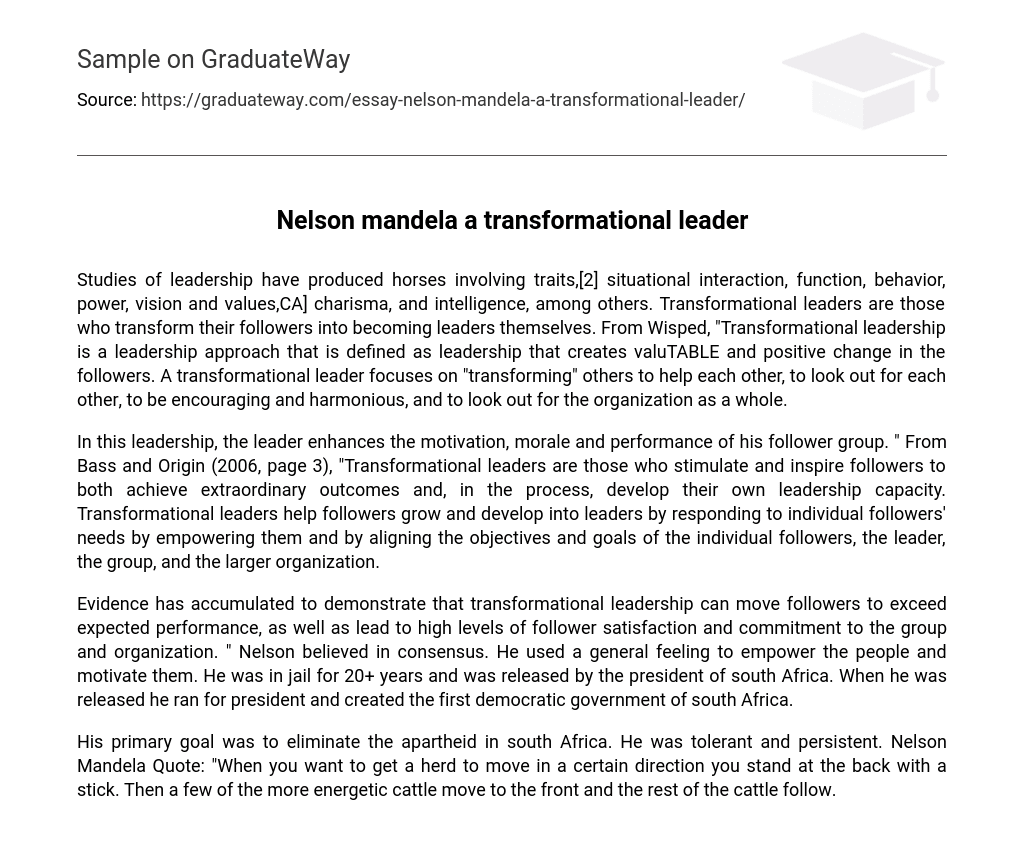Studies of leadership have produced horses involving traits,[2] situational interaction, function, behavior, power, vision and values,CA] charisma, and intelligence, among others. Transformational leaders are those who transform their followers into becoming leaders themselves. From Wisped, “Transformational leadership is a leadership approach that is defined as leadership that creates valuTABLE and positive change in the followers. A transformational leader focuses on “transforming” others to help each other, to look out for each other, to be encouraging and harmonious, and to look out for the organization as a whole.
In this leadership, the leader enhances the motivation, morale and performance of his follower group. ” From Bass and Origin (2006, page 3), “Transformational leaders are those who stimulate and inspire followers to both achieve extraordinary outcomes and, in the process, develop their own leadership capacity. Transformational leaders help followers grow and develop into leaders by responding to individual followers’ needs by empowering them and by aligning the objectives and goals of the individual followers, the leader, the group, and the larger organization.
Evidence has accumulated to demonstrate that transformational leadership can move followers to exceed expected performance, as well as lead to high levels of follower satisfaction and commitment to the group and organization. ” Nelson believed in consensus. He used a general feeling to empower the people and motivate them. He was in jail for 20+ years and was released by the president of south Africa. When he was released he ran for president and created the first democratic government of south Africa.
His primary goal was to eliminate the apartheid in south Africa. He was tolerant and persistent. Nelson Mandela Quote: “When you want to get a herd to move in a certain direction you stand at the back with a stick. Then a few of the more energetic cattle move to the front and the rest of the cattle follow.





